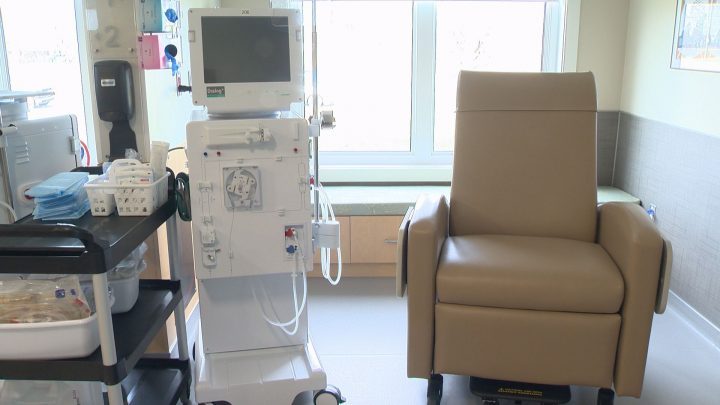Thousands of Manitobans are affected by kidney disease.

Although diabetes and high blood pressure are the leading causes of kidney disease in the province, there are others, like auto-immune diseases or genetic kidney disorders.
5,600 Manitobans are currently being treated for chronic kidney disease, with another 1,700 spending World Kidney Day (March 14) using dialysis.
One of those people is Winnipeg’s John Bond, a retired university professor.
Bond told 680 CJOB Thursday that dialysis – the process of removing excess water, solutes, and toxins from the blood when kidneys can’t perform their normal function – has had a significant impact on his life.
“It’s taking control over parts of my time,” said Bond, who lived with a kidney condition for 15 years before needing dialysis.
“It takes me about five or six hours a day right now, just because I’m pretty fresh at it. That’s a lot of time to give up, just to sit in a chair while this goes on.”

Get weekly health news
Bond said his initial diagnosis came as a surprise – he had no family history of kidney problems and his condition was unexpectedly discovered during a routine physical.
“They managed to slow, slow, slow the progress so I was able to finish up work, retire, and do some travelling,” he said.
WATCH: Researchers discover ways to prevent kidney damage during medical procedures

When it came time that dialysis was necessary, Bond said he’s thankful that in-home treatment was an option. Although it took two months of intensive training and requires a lot of household space for the medical equipment, he said it’s given him a degree of freedom that he may not have otherwise had.
“Home dialysis, for me, gives me the most flexibility and time and control over things,” he said. “With the home dialysis, I do it four days a week. I can choose the time of day, I can choose which days.”
Overall, Bond said his experience with kidney disease has led him to urge others to pursue a healthy lifestyle and keep up on their regular physicals.
“I think the main thing is for people to get routine physicals. I think the early diagnosis of this is really important. It’s also important to try to control your diet to avoid things that might lead to type 2 diabetes, the sugar, keep your salt down.
“It’s about a healthy lifestyle and keeping in touch with your medical teams.”












Comments